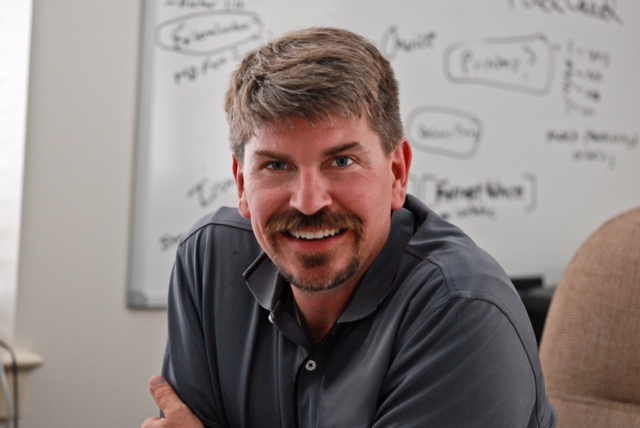November 2020
Dr. Duane Hagelgans

1. What does it mean to be asked to co-lead a special team such as the Incident Management Team (IMT)?
This was a great honor to have been asked by President Wubah, however, it is important to note that this is a TEAM, a TEAM from diverse backgrounds with a lot of expertise in many areas of our campus life, which makes being one of the co-leads even more special. I have been involved in many events through my career, but none have been bigger or more complex than this one, so being asked to co-lead for such an important undertaking is a very special thing.
2. How does your service on this team influence your teaching?
As both an academic and a practitioner, these experiences that we are gaining directly relate to the classroom and our student's education. Both our Undergraduate students and our Graduate students are not just being educated but also intimately involved with the planning process and an understanding of real-world emergency management. In emergency management, experiential learning goes hand-in-hand with the education, which is what both Dr. Yalda and I have been able to do through our roles as faculty and IMT members.
3. How does your background in emergency management affect the way you co-lead this team?
When I was first asked to assist with the TEAM, I asked for it to be organized as an Incident Management Team, because this is how emergences and disasters are efficiently managed in events all around the world every day. My experiences from many disasters allows me to understand that to coordinate an event, you need a great team of subject matter experts collaborating, which is what we have been done all semester, while also planning for the Spring. This pandemic is like every other major event, so utilizing our emergency management skills allows us to properly analyze the situation and data in hopes of making the right decisions. We then assess those decisions and adjust, just like any other event in which we do disaster management. Many times, the decisions we must make in disasters do not make people happy, but we are tasked with making the right decisions based upon the facts of the situation. As an IMT we must look at what is best for the whole of the situation, not the few. We are tasked with decision-making for the entire campus community and greater community. No one has ever managed a global pandemic to this extent, so decision-making is complex.
4. What would you like faculty to know about service on special committees?
It is always an honor to be asked to serve on these types of special committee for many reasons, but the reason I like these types of committees is because you get to work with Faculty, Staff and Students from across the university in an effort to not only make Millersville safe, but a much better place.
5. What have been some challenges for the IMT?
Some of the biggest challenges we have faced involve communication, which we see at every disaster event. Millersville is large and complex, in addition, we are dealing with an ever-evolving event, so proper communications is tough, especially when it comes to making sure everyone has all the information they need. We have developed many flow charts and communication channels that are constantly being updated as things change, which keeps us busy seven days a week. In addition, as large as Millersville is, we have different stakeholders with different interests. Sometimes the stakeholders do not understand that when our TEAM looks at various issues, questions, etc., we are looking at the fifty-thousand-foot view with our number one goal: Keeping the Students, Staff and Faculty safe. Most only see their one small area and don't see how it all interconnects when we look at the overall picture, which is to be expected in any large scale event.
6. Has anything surprised you about your time on the IMT?
Although I expected it to be a lot of work, I probably underestimated how much time all of our team members have to put into our IMT duties, which for all of us are in addition to our regular duties. This is a seven day a week position, many days spending 8-10 hours on COVID issues and planning.
7. What has made you the proudest?
Number 1: Our TEAM. This TEAM started the semester with a lot that needed to be completed in a short time. We had to develop many procedures and mechanism for overseeing this event. We also had to put in place reporting requirements and mechanisms, so we spent a great amount of time the first few weeks of the semester creating systems. Number 2: Our students! Whereas a lot of universities have struggled with very high numbers, our students have been exceptional in doing the "right things" to keep our numbers low.
8. What are the next steps for the IMT?
We are working on finishing the semester. We have just completed the plans for students leaving campus on November 20th. We have developed plans for Faculty and Staff for the period from November 20th until the Spring semester begins. We are working on what we call an after-action report, in which we are looking at everything that went right and areas where we struggled this semester, to make improvements for the Spring semester. There is a tremendous amount that we learned this semester, which needs to go into our plans for a SAFE Spring semester. We cannot let our guard down, especially as the numbers are starting to climb again and are now higher than they were in the Spring of this year.